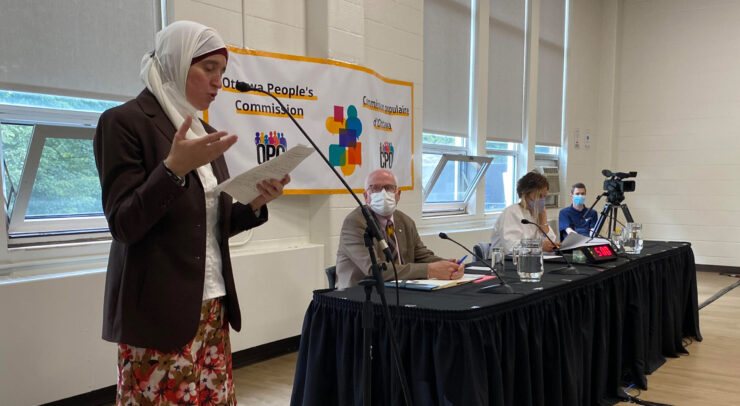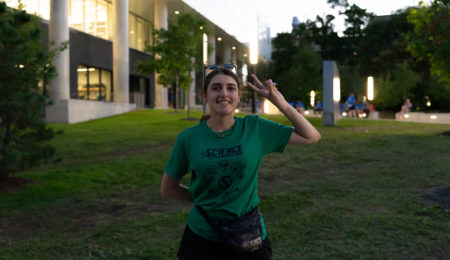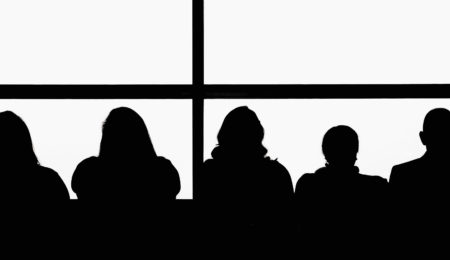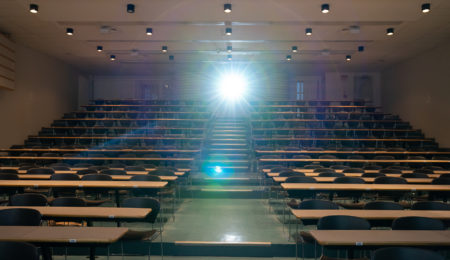Both dissenters and supporters of the convoy testified in front of commissioners
Nearly seven months after the Freedom Convoy, the Ottawa People’s Commission (OPC) heard testimonies from Ottawa residents on Sept. 21 and 22.
In total, 12 community members shared their experience with the OPC, which plans to “chronicle what happened and failed to happen during and after the convoy — and its impact on residents, workers and businesses.”
The public hearings, held at McNabb Community Centre and Patro d’Ottawa, were the first of many scheduled to take place this fall. Meanwhile, a final report compiling information from the public hearings, as well as community consultations, is anticipated for February 2023.
What is the OPC?
The commission was created after Ottawa residents were left “traumatized” by the convoy occupation earlier this year. It is a vehicle to ensure “those that failed to end the occupation and protect public health and safety” are held accountable.
The four commissioners are Leilani Farha, Alex Neve, Debbie Owusu-Akyeeah, and Monia Mazigh. They all have extensive experience in human rights and community organizing.
Mazigh, a professor of English and literature at Carleton University, said she joined the OPC because of her faith in the power of grassroots activism.
“I chose [to be a part of] the OPC because I am a strong believer of grassroots initiative[s] and OPC is an initiative that was set by Ottawa residents. As a resident of Ottawa, [and] as a human rights activist, I feel that I need to be part of this initiative to listen, reflect, and prepare a report about that chapter that affected all of us in Ottawa.”
Similarly, Neve — an adjunct professor in International Human Rights Law at the University of Ottawa, and a senior fellow with the Graduate School of Public and International Affairs — was motivated by his passion for human rights, and a need to seek justice for Ottawa residents who have been wronged.
“There are many people and neighbourhoods who have been overlooked to [date]. That, in turn, is all about human rights, and exploring the ways that we can and must do better when it comes to protecting human rights is my passion.”
Hearing Highlights
Over the course of the two public hearings, the commissioners witnessed accounts from residents of all kinds, including the inconvenienced, counter-protestors, and even one woman who gave a “glowing review” of the occupation.
“We had someone [who] came to testify that they had a great experience with the Freedom Convoy. We heard this testimony. So far, it is the only person we heard [having this experience],” confirmed Mazigh.
She continued, “Everyone else has a story that contradicted this ‘positive‘ experience. We heard people who felt being taken hostages in their own town and that those who partied and celebrated the convoy didn’t allow them to sleep quietly, to live peacefully, and even to protest.”
Neve added that while the OPC will listen to these kinds of stories, their report will focus mostly on the larger impact of the Freedom Convoy.
“We are certainly open to hearing those views from Convoy supporters … But we are very much focused on impact, not just whether people liked the convoy or were in favour of its goals. We will be looking for input that describes that personal impact, whether it was negative or positive.”







